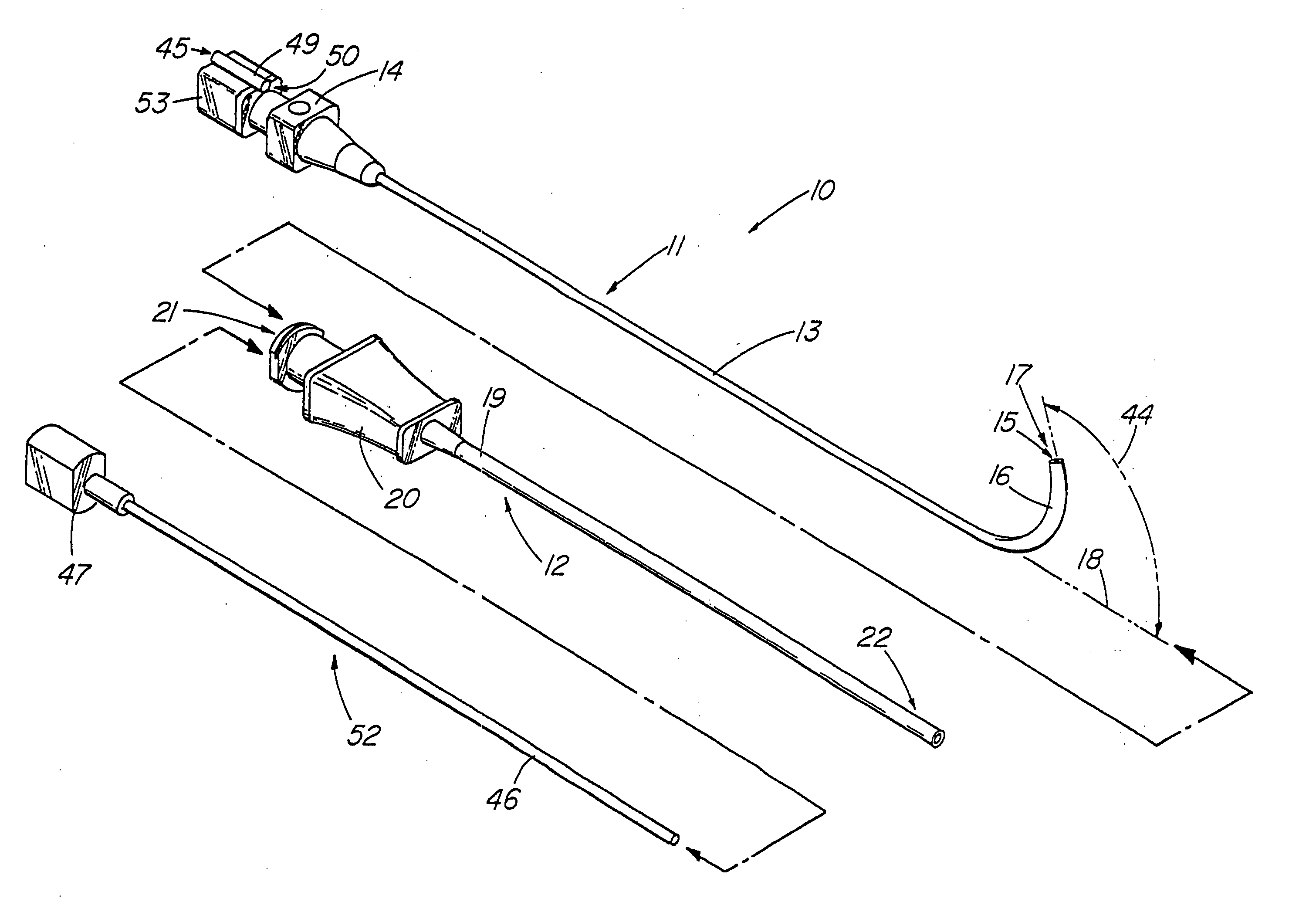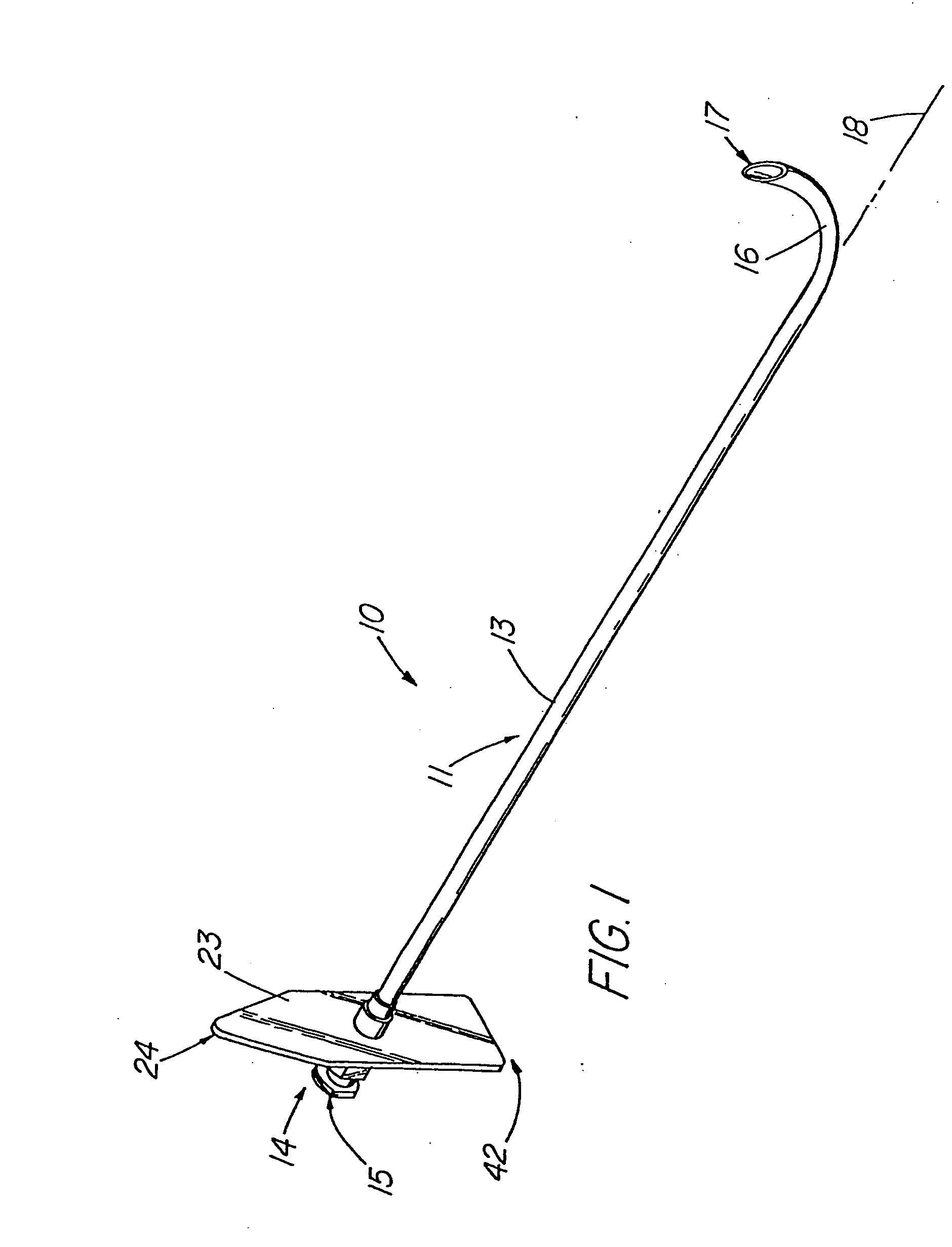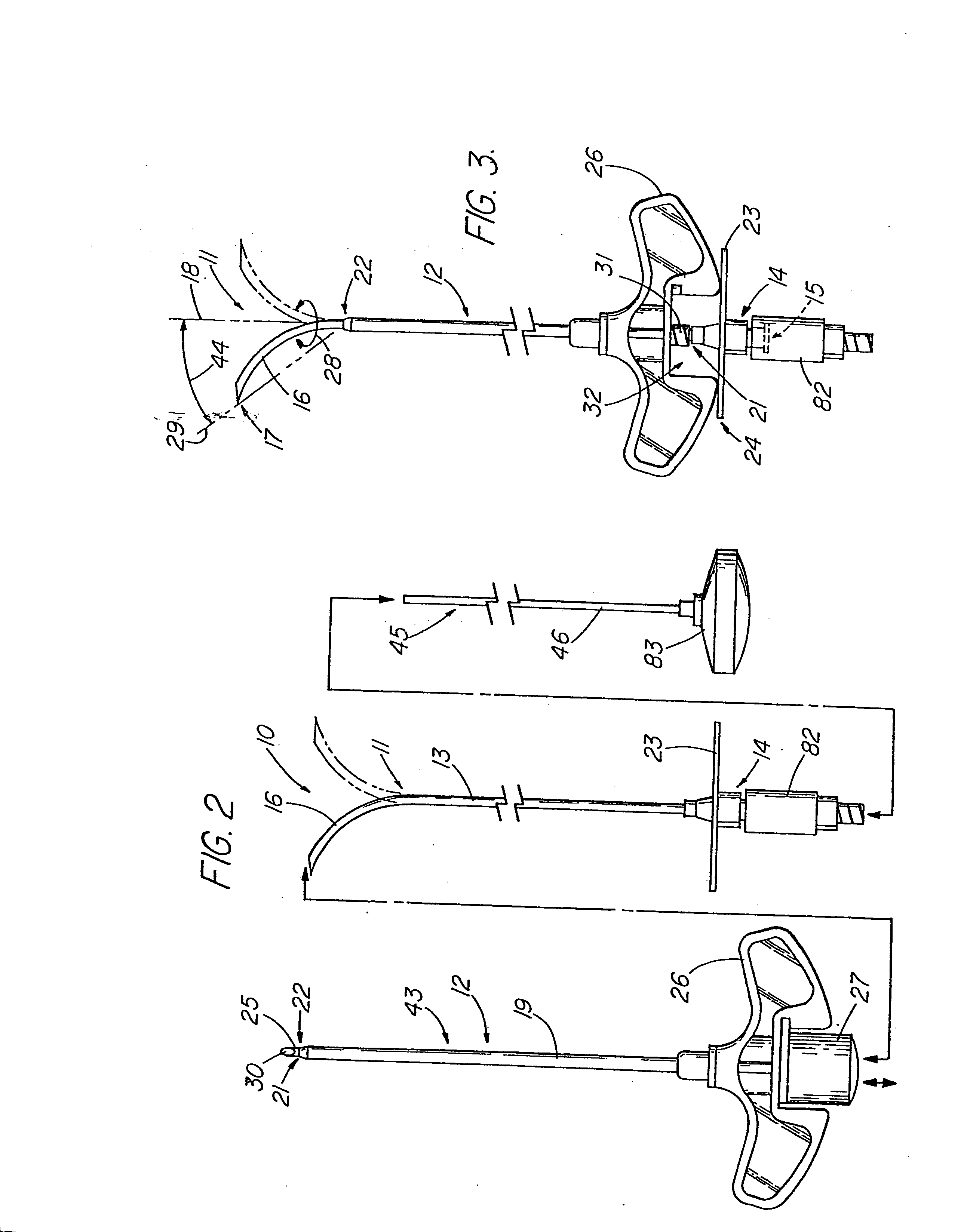Hollow curved superelastic medical needle and method
a superelastic, medical needle technology, applied in the field of medical devices, can solve the problems of complex medical procedures involving vertebrae, inability to fill the entire target area of single infusion, and baffle, etc., to achieve the effect of avoiding damage to delicate structures, avoiding baffle, and reducing the risk of injury
- Summary
- Abstract
- Description
- Claims
- Application Information
AI Technical Summary
Benefits of technology
Problems solved by technology
Method used
Image
Examples
Embodiment Construction
[0058]FIG. 1 depicts a needle assembly 10 comprising an infusion needle 11 with a preformed bend 16 for lateral infusion or aspiration of medicaments and other materials. As defined herein, the “needle assembly 10” can comprise infusion needle 11 alone or infusion needle 11 in combination with other components. The “infusion needle 11” as defined herein comprises one or more needle cannulae having a preformed bend 16.
[0059] The infusion needle 11 of FIG. 1 is comprised of a superelastic alloy needle cannula 13, preferably the alloy sold under the trademark Nitinol, that is soldered or otherwise affixed to a well-known needle hub 14 using one of a selected number of well-known techniques, including that of Hall described in U.S. Pat. No. 5,354,623 whose disclosure is expressly incorporated herein by reference, and a flange 23 which has a first tapered or pointed end 24 whose shape is readily distinguishable from the second, squared end 42.
[0060] First end 24 corresponds to the dire...
PUM
 Login to View More
Login to View More Abstract
Description
Claims
Application Information
 Login to View More
Login to View More - R&D
- Intellectual Property
- Life Sciences
- Materials
- Tech Scout
- Unparalleled Data Quality
- Higher Quality Content
- 60% Fewer Hallucinations
Browse by: Latest US Patents, China's latest patents, Technical Efficacy Thesaurus, Application Domain, Technology Topic, Popular Technical Reports.
© 2025 PatSnap. All rights reserved.Legal|Privacy policy|Modern Slavery Act Transparency Statement|Sitemap|About US| Contact US: help@patsnap.com



